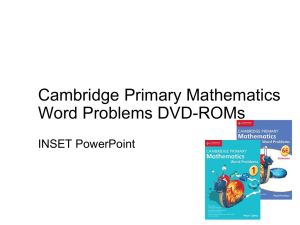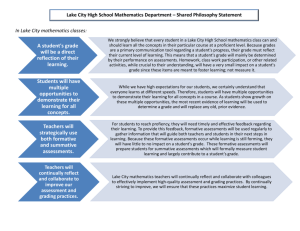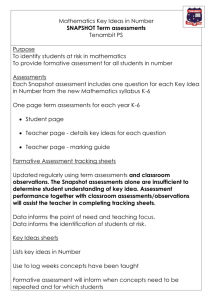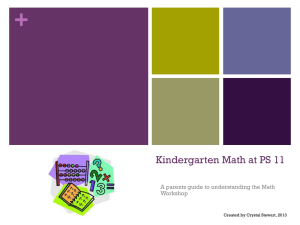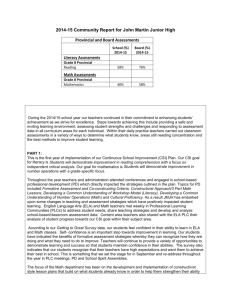Negotiating identity in the mathematics classroom
advertisement
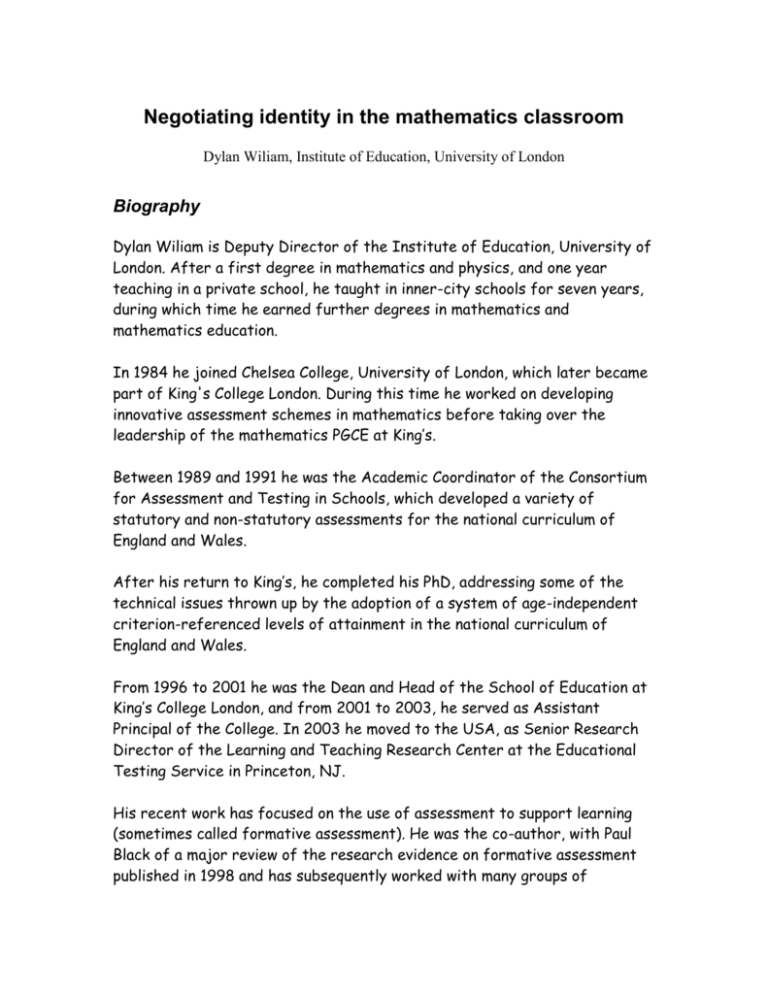
Negotiating identity in the mathematics classroom Dylan Wiliam, Institute of Education, University of London Biography Dylan Wiliam is Deputy Director of the Institute of Education, University of London. After a first degree in mathematics and physics, and one year teaching in a private school, he taught in inner-city schools for seven years, during which time he earned further degrees in mathematics and mathematics education. In 1984 he joined Chelsea College, University of London, which later became part of King's College London. During this time he worked on developing innovative assessment schemes in mathematics before taking over the leadership of the mathematics PGCE at King’s. Between 1989 and 1991 he was the Academic Coordinator of the Consortium for Assessment and Testing in Schools, which developed a variety of statutory and non-statutory assessments for the national curriculum of England and Wales. After his return to King’s, he completed his PhD, addressing some of the technical issues thrown up by the adoption of a system of age-independent criterion-referenced levels of attainment in the national curriculum of England and Wales. From 1996 to 2001 he was the Dean and Head of the School of Education at King’s College London, and from 2001 to 2003, he served as Assistant Principal of the College. In 2003 he moved to the USA, as Senior Research Director of the Learning and Teaching Research Center at the Educational Testing Service in Princeton, NJ. His recent work has focused on the use of assessment to support learning (sometimes called formative assessment). He was the co-author, with Paul Black of a major review of the research evidence on formative assessment published in 1998 and has subsequently worked with many groups of teachers, in both the UK and the USA, on developing formative assessment practices. Brief abstract/outline In this presentation, drawing extensively on my collaborations with Hannah Bartholomew, Jo Boaler, Diane Reay and Robin Zevenbergen, I will discuss how assessments afford, and in particular, constrain the identities available to students in mathematics classrooms. I will begin by showing how assessments are “objects of history” shaped by political, cultural and technical factors, and are therefore arbitrary, rather than natural—in other words, I will show that there is no such thing as “objective assessment”. Then, through a series of short extracts from interviews with primary, secondary and tertiary students, I will examine how these arbitrary assessments constrain and afford the identities that are possible for students, and discuss some of the ways in which students exercise agency within the constraints and affordances. Finally, the relative merits of three theoretical perspectives—the ‘figured worlds’ of Holland et al, the ‘communities of practice’ of Lave and Wenger, and ‘activity systems theory’ as developed by Engeström and others—for analysis of these kinds of data will be discussed. Key references Engeström, Y., Miettinen, R., & Punamäki, R.-L. (Eds.). (1999). Perspectives on activity theory. Cambridge, UK: Cambridge University Press. Holland, D., Lachicotte Jr, W., Skinner, D., & Cain, C. (1998). Identity and agency in cultural worlds. Cambridge, MA: Harvard University Press. Wenger, E. (1998). Communities of practice: learning, meaning, and identity. Cambridge, UK: Cambridge University Press.
